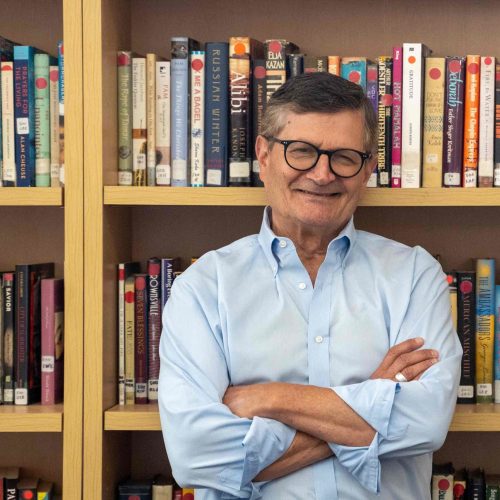Confession: just because I read 400-page histories of religion (with footnotes!), does not mean that I don’t enjoy the occasional “reality” TV show. Recently (and I think I’m a little late to the party) I’ve stumbled upon Below Deck, a series on the Bravo Channel. For the three or four of you who haven’t seen the show, it’s a sea-going Upstairs Downstairs (hence, Below Deck), in which very high-end charter guests enjoy five-star meals on a luxury yacht, while the crew spends sixteen-hour days cooking, ironing, serving and swabbing (the deck).
As someone with indelible memories of deep-sea fishing trips with my father, I have always enjoyed anything to do with the water. More than that though, I’ve latched onto this program because I enjoy watching a team – when they function as a team – become more than the sum of its parts. For me, it’s not about the haute cuisine (I can’t even name most of the trayf they serve), and I’m pretty sure – like most “reality shows” – that a good chunk of the drama is contrived.
Guilty pleasure number two: The Biggest Loser. I don’t think this is on the air anymore, but I’ll admit that I enjoyed this one too. For me, it wasn’t about the weight loss, though the hard work and determination contestants exhibited were inspirational. I tuned into this show because I’ve always been fascinated by intentional transformations. Physical transformations are one subset, but there are many other ways people effect radical changes. Conversion – and aliyah – are phenomena that at heart are examples of dramatic, personal makeovers. Complicated, challenging and deeply meaningful.
The relevance to education, to our school? In the first instance, Below Deck is a cautionary tale of two ways in which things – on a ship, in a community, in a school – can fall apart. One way is when the only – or even when the primary – motivation for a professional (deck hand or teacher, chief steward or administrator, captain or head of school) is financial, it’s just not enough. There’s a formulaic scene toward the end of most episodes, when the captain doles out the tip to the entire crew. No doubt they all worked very hard – they’ve earned it, and they’re quite honest about why they do what they do (“I’m in it for the money” is repeated over and over again). Yet it strikes me as hollow; I’ve worked for years (OK, for decades) where the “mission” and the “vision” have primacy, where the core values are the drivers behind all those hours and hard work. True, mission and vision don’t pay the rent, and our Jewish communal professionals and educators deserve what they earn – but they do what they do for so many other reasons.
The other lesson embedded in Below Deck is obvious to anyone who has ever been part of a team (on a field, on a stage, in an office, in an ER). Everyone is essential, irrespective of title or experience or perceived prestige. The captain isn’t there – who pilots the ship? The chef is missing – who’s going to design those intricate meal plans? They’re the ones everyone sees and they soak up the spotlight – but without the stewards turning over the beds and the deck hands wiping down the deck and the engineer keeping the engine running… You get the picture. We need them all. All the captains and chefs in the world won’t matter if the others aren’t there with them, even if they’re below deck.
And The Biggest Loser’s lesson for us? Those transformations are genuinely incredible, and kol hakavod (more power to them) to the contestants who work so hard to regain their lives. The difference though between our work – our schools in particular – and “the ranch” featured in The Biggest Loser is that our transformations are collective, not merely individual. Our mission is not solely to impact the lives of each individual student; it’s to affect a community – a people. This is how our schools are truly, defiantly different: we will and we do change each student’s life – through high school and forever. Yet while we do that, we know that our entire community benefits. As RAVSAK, the former umbrella network for community Jewish day schools, put it: our client is the Jewish future.
שבת שלום – Shabbat Shalom,
Jerry

